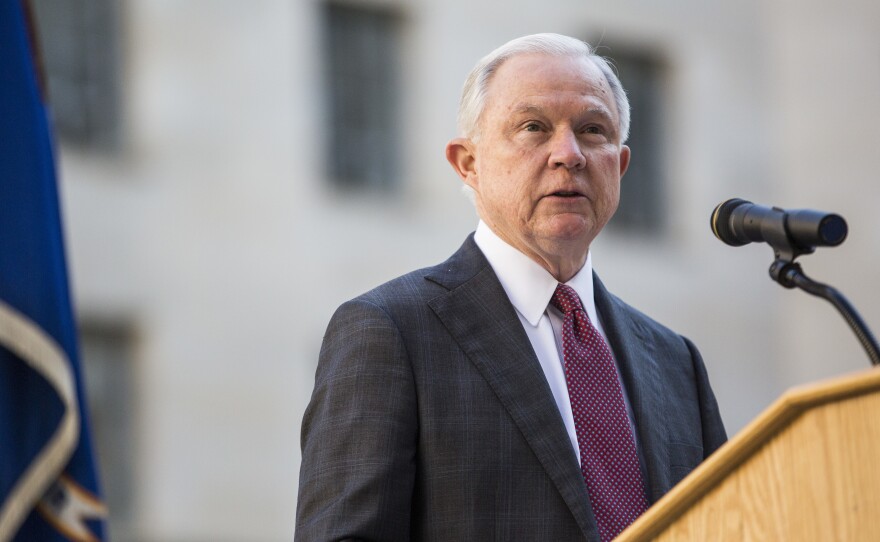Updated at 11:30 a.m. ET
Attorney General Jeff Sessions testifies Wednesday before the Senate Judiciary Committee and senators are going to have a lot of ground to cover with the nation's top federal law enforcement official during the oversight hearing.
As NPR's Carrie Johnson reported, in his eight months as attorney general:
"Sessions has presided over a series of Justice Department reversals — from police oversight and voting rights litigation to protections for the LGBT community. And then there's the matter of his contacts with Russians during last year's presidential campaign, where Sessions served as one of President Trump's most vocal advocates. Sessions didn't include those on his security clearance forms. An aide said he was following guidance from the FBI."
In his opening statement, Sessions rebuffed the panel's Democrats, who had written the attorney general regarding potential assertions of executive privilege. "We expect that...you will have determined whether the president will invoke executive privilege as to specific topics and will be prepared to answer completely all questions in those areas on which he has not," the nine Democratic senators said in a letter last week. Sessions had refused to answer questions relating to the Russia probe in June testimony before the same committee, saying it was inappropriate.
On Wednesday, Sessions told the panel that he "will not be able to discuss the contents of my conversations with the president."
Under questioning from the panel's ranking Democrat, Sen. Dianne Feinstein of California, Sessions said he doesn't think "it's been fully understood the significance of the error" fired FBI Director James Comey made in the investigation of Hillary Clinton's emails.
Feinstein asked Sessions his role in the firing of Comey last May. Sessions said he had "never heard of an investigator" declaring the closing of an investigation as Comey did, and that he was particularly concerned that Comey said he would do it again. Sessions said there was a need for "a fresh start" at the FBI, but said his discussions with President Trump on the matter were confidential.
Sessions was also asked about his conversations with then-Russian Ambassador Sergey Kislyak during last year's presidential campaign. Sessions denied speaking to Kislyak during his confirmation hearings last January, and then recused himself from the probe into Russian interference in the election after the meetings were revealed.
Sessions said Wednesday he did not recall any discussions about the Trump campaign during his meetings with Kislyak and denied meeting with any Russian officials to discuss coordination between the campaign and Russia.
He also said that he had not been interviewed by special counsel Robert Mueller, who is leading the Department of Justice investigation into Russian interference.
Copyright 2017 NPR. To see more, visit http://www.npr.org/.






